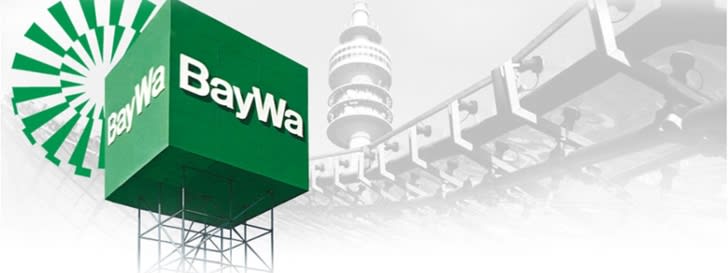
Energy-saving house and mobility
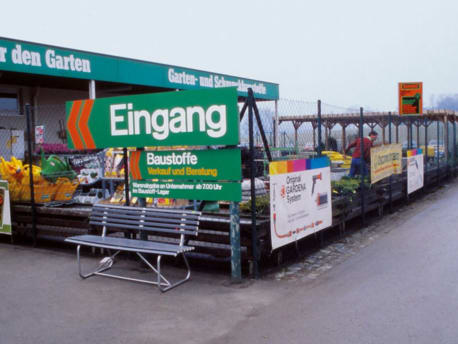
BayWa in the era of the building boom
Building materials increasingly became the foundation for BayWa’s success. The company constantly hired new employees. BayWa began working with new crane vehicles to ensure on-time deliveries to building sites.
The year 1970 saw the first large retail markets offering product lines for the house, home and garden, cars, leisure, DIY and trades. The choice of products ranged from work gloves to fence pickets.
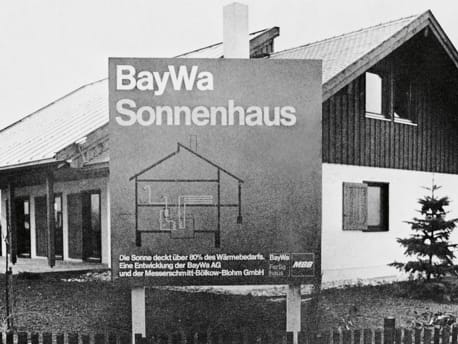
The BayWa Sonnenhaus – at the vanguard of energy conservation
In 1976, BayWa’s Sonnenhaus, which used solar energy to cover more than 80% of its heating needs, showed people that saving energy was sustainable and did not mean sacrificing comfort.
The company developed the pioneering energy-saving house in cooperation with Messerschmidt-Bölkow-Blohm GmbH. Despite having a large one-piece energy collecting surface measuring more than 80 sqm, the Sonnenhaus in the Bavarian town of Otterfing still remained true to the style of an Upper Bavarian country house.
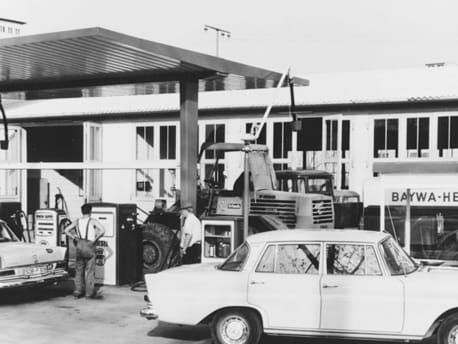
Maximum comfort at home with minimum heating costs
BayWa was also a pioneer in insulation to guarantee. The building materials segment worked with specialists in building-services engineering to develop sustainable heating solutions for houses and commercial buildings.
Convenient on the go with BayWa
The economic upturn in Bavaria and the increasing desire among the population for mobility and convenience had a very positive effect on revenues linked to mineral oils, including lubricants, oils and diesel.
Diesel fuel pumps had long been a feature at BayWa’s sites, but now the company’s own network of filling stations began to take shape.
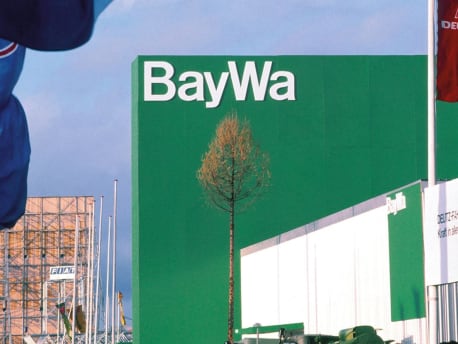
Strong cooperative influence remains
BayWa met the demands associated with growth in business volume by increasing its capital from DM 40 million to DM 60 million. Following the capital increase, the cooperative Raiffeisen banks held 47% of the company’s share capital, with the BRZ holding 44%. Ordinary shareholders held 6% of the shares, and BayWa held 3% itself. Cooperative shareholders therefore remained a group with immense power.
Agricultural trading and equipment accounted for the lion’s share of revenues in the late 1970s. But mineral oils, building materials and retail had grown in importance. In 1979, the company’s employees – now numbering more than 14,000 – generated revenues of DM 5.45 billion.
Intensified structural change in agriculture and the company’s high market share in Bavaria meant BayWa was faced with the strategic task of searching for opportunities to grow outside of the agricultural industry in future.